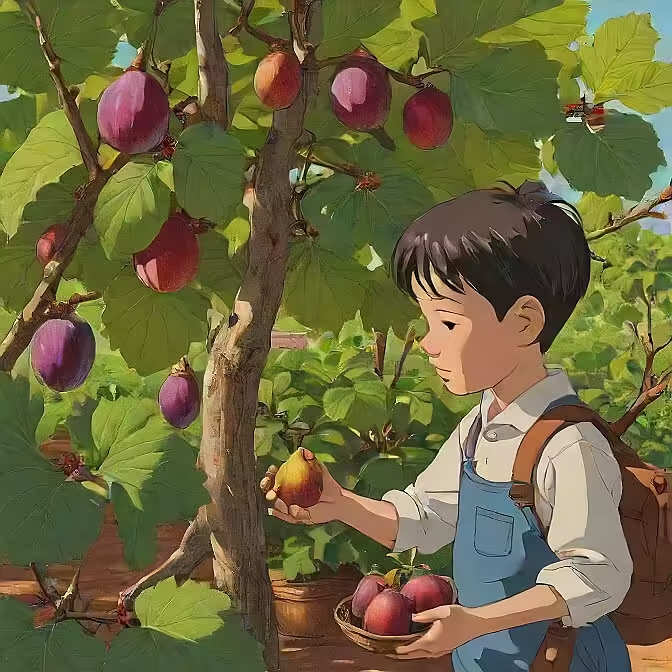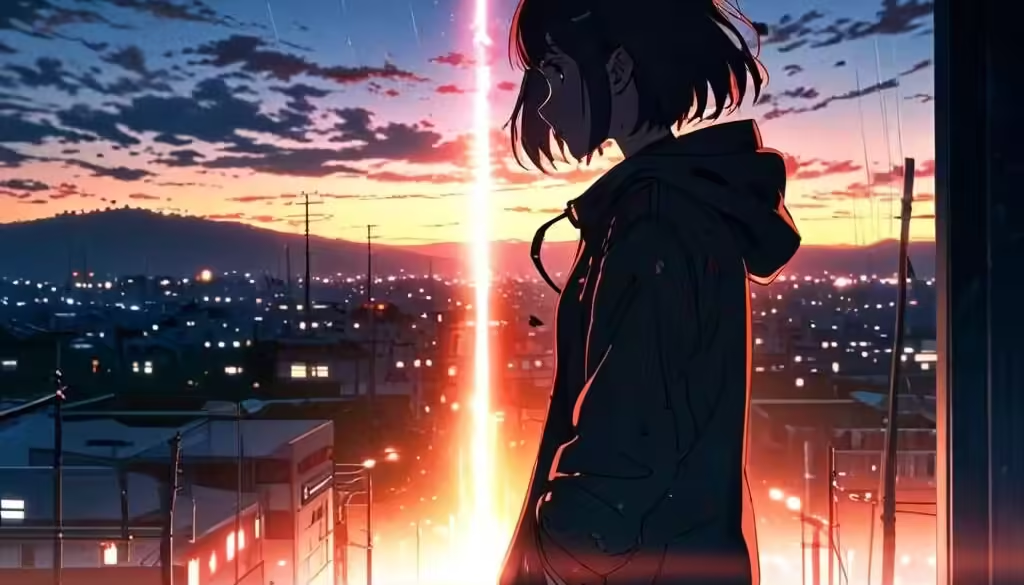So You Have an Existential Crisis
A man having an existential crisis goes to see a philosopher for advice.
The philosopher says:
“I can’t tell you the meaning of life, but for $100 I can explain why there is no meaning.”
And no, I won’t say you just have to find purpose and things should be fine afterwards.
It helps but that’s not addressing the root cause of a crisis.
We don’t want to have a meltdown every now and then.
It’s better if we deal with it the right way so we can move forward in the right direction.
So now you’re probably wondering:
If you’re not going to sell me on purpose like most advocate, what else is there to solve an existential crisis?
Well, this post is for you.
Now, picture this:
You’re standing at a crossroads, paths branching out endlessly before you.
Each one promises a potential future life.
A traveler, a businessman, a poet, just the vast number of choices feels both thrilling and utterly paralyzing.
I’m sure you and I can relate to that.
This is the prime of our lives when the world seems to offer us boundless opportunities.
It’s safe to call it the “maximizing” trap.
It’s an obsessive quest you and I endlessly cycle through that puts us in crippling inaction.
Sylvia Plath’s metaphor in her book Bell Jar is a perfect example that paints this idea.
The protagonist Esther Greenwood struggles with her own identity, mental health, and the societal expectations placed upon her.
She finds herself starving in front of a fig tree with so many branches of “figs”.
At the end, she feels paralyzed by the fear of plucking one, thus pruning the infinite possibilities.
So she eventually picks nothing.
The idea here applies to you and me when we have so many figs (choices) before us and end up in paralysis instead.
Life is hard already at this point.
This even gets amplified by the modern digital world facilitating endless browsing yet finite choosing for us.
Dating apps, job platforms, and curated social media feeds seduce us with visions of seemingly greener alternatives at every scroll and swipe.
Suddenly, our real-life relationships, careers, and hobbies appear so painfully lackluster in comparison.
After all,
Why would you commit when one more enticing alternative could be just one swipe away?
This psychological trap breeds a toxic fear of missing out, fueling our chronic indecision.
The Next Stage of Existential Crisis
Here comes one of the greatest minds from the existential era to the picture.
Kierkegaard called this existential crisis the “dizziness of freedom.”
The radical liberty to create our lives however we wish feels so empowering, yet also deeply debilitating.
We keep having many thoughts that keep us stuck.
What if we make the wrong choice?
What if our investments of time, money, passion fail to pay off?
This risk-vertigo leaves us permanently frozen on the sidelines.
So what do we do here?
Well, we default to a holding pattern of aimless striving to fill our existential dreads.
We start working hard at professional and personal goals while forever on the look out for more shiny sideways options.
Robert Godin puts it nicely in his book ‘on settling’ .
He mentioned that our culture has labeled this endless striving as a badge of honor, while pathologizing its necessary counterpart – settling.
You see, you and I must first set our sights on a meaningful goal worth fully pursuing.
Before your training can begin, you have to choose what journey you are willing to go on.
To this regard, settling doesn’t mean giving up; it means firmly committing to a path, even if it’s not permanent.
In my experience, we fear the disappointments more that actually making any choice.
There’s a good reason for that.
We dislike that the excitement might wear off and the difficulties become more noticeable.
What once was a glowing passion is now fading and our once grand dreams are now losing their appeal.
This is why you and I keep jumping from idea to idea and refuse to settle.
So we always keep chasing that ‘next big thing’, and the cycle repeats itself.
Now, here’s why the idea of settling can feel like an existential crisis.
For many of us, “settling” feels like cowardly compromise or admitting we don’t deserve our ideal life.
I get that but I also think it’s an arrogant belief, to feel entitled to nothing but great events.
As I mentioned in my previous post, this is like saying ‘ why bad things happen to me ‘ as if somehow the world revolves around us!
To put it bluntly, it’s like saying ‘ I don’t just want everything, I want the very best of everything’.
Now, this begs me to ask:
At what point does this obsession with the existential ideal become fundamentally unlivable?
This is surely an unhealthy outlook on life since you won’t tolerate or stick to anything the moment life throws some curveballs at you.
A healthier view is to accept a radical truth:
None of us can truly “have it all” whether you’re a saint or a jerk.
We are limited by time, death, and having to make tough choices.
Settling isn’t conforming to an existential crisis, it’s accepting life’s harsh limits while finding purpose and growth in your chosen path.
It’s acknowledging that your limited life force must be invested in something, not endlessly wasted by fearful hesitation.
Even if you initially “choose wrong”, you’re still gaining invaluable self-knowledge.
The Psychologist Meg Jay advises that our 20s should be an intense “existential exploration” phase.
We should have many jobs, relationships, side-gigs and bucket-list pursuits.
This ensures prioritizing personal growth over narrow success and really finding your ‘space’ in this world.
It’s only through this committed wandering that we slowly get to build vital “identity capital”.
Skills, experiences and self-awareness are all side effects of this wander that will add more to our core values and driving passions.
It matters less which exact path you first wander down than the act of wandering itself.
It’s only by stubbornly committing to something that we gain crucial insights to re-evaluate our “settling choices” over time.
Endless aimless striving leaves us hopelessly adrift.
This is the profound wisdom in Nietzsche’s famous saying:
“To become who you are, you must have no notion of what you are.”
This call to radical self-uncertainty inspires us to be in full immersion in an exploratory existence.
It’s only when you let go of stale, preconceived ideas of your identity that you can create a fertile ground for true self-actualization.
This applies to pretty much everything you do, the hubbies you’re always doing, and the places you always go to.
Exploration is a key part here.
The path reveals itself to you if you’re actively walking it.
Each problem, failure, existential crisis, and shaken belief becomes an invaluable lesson for your growth.
Like Siddhartha in Herman Hesse’s novel, we must resist endlessly seeking some perfect, settled ideal of life.
It doesn’t exist at face value.
Instead, our existence is meant to be a mix of experiences, love, heartbreaks, and reinventions.
So to recap, think about it this way:
an existential crisis is a classic “paradox of choice” conundrum or not having any choice whatsoever.
The more options you have available, the easier it becomes for you to chronically second-guess any of them.
On the flip side, if you have no options at all, that can lead to feeling trapped in an endless loop of familiarity.
And depending on how your life is going, this can either be a good thing or a bad thing.
So take a minute and see how your life is going.
Is it going as you want it? Do you feel satisfied or do you feel something needs to change?
Either way, indecisiveness creates a self-imposed prison that slowly eats you up.
It’s this indecisiveness that feeds existential crisis.
And this reminds me of a business saying:
Get busy or get broke.
That means, in an existential crisis, making a decision is way better than doing nothing.
So for God’s sake, pick a damn fig!
Sink your teeth into its sweet, lush flesh.
Let the juices of lived experience stain your chin, for this is true self-discovery baptism.
Your chosen path will inevitably be hard, and chaotic with many new outcomes to see.
And guess what, that’s how it should be and that’s fine.
You’ll outgrow old ambitions, abandon once-vital dreams, and cut off friendships or relationships you never thought you would.
Think back to so many hurdles you thought you’d never cross, look at you now!
You’ll endure crises that shatter your former self-conceptions and ideas.
But this is life’s very essence. It doesn’t happen to you, it happens for you.
So listen to our great uncle Nietzsche and ” explore more”, and let your existential journey begin.
And to end the quote of the philosopher I mentioned at the beginning, you create your own meaning when you explore more.
I guarantee you your life would never be the same when you start exploring.
How do I know that?
Because I had an existential crisis before.
I’ve explored so many things that peaked my curiosity and interests so much so that what I do now is so different from what I thought I’d be.
It takes some work and time, but it will happen for sure.
So just pick a damn fig.

Thanks for reading!
Have you had a moment that is similar to an existential crisis? What have you learned from that moment?
Drop your thoughts freely in the chat section!
Until next time 🙂



